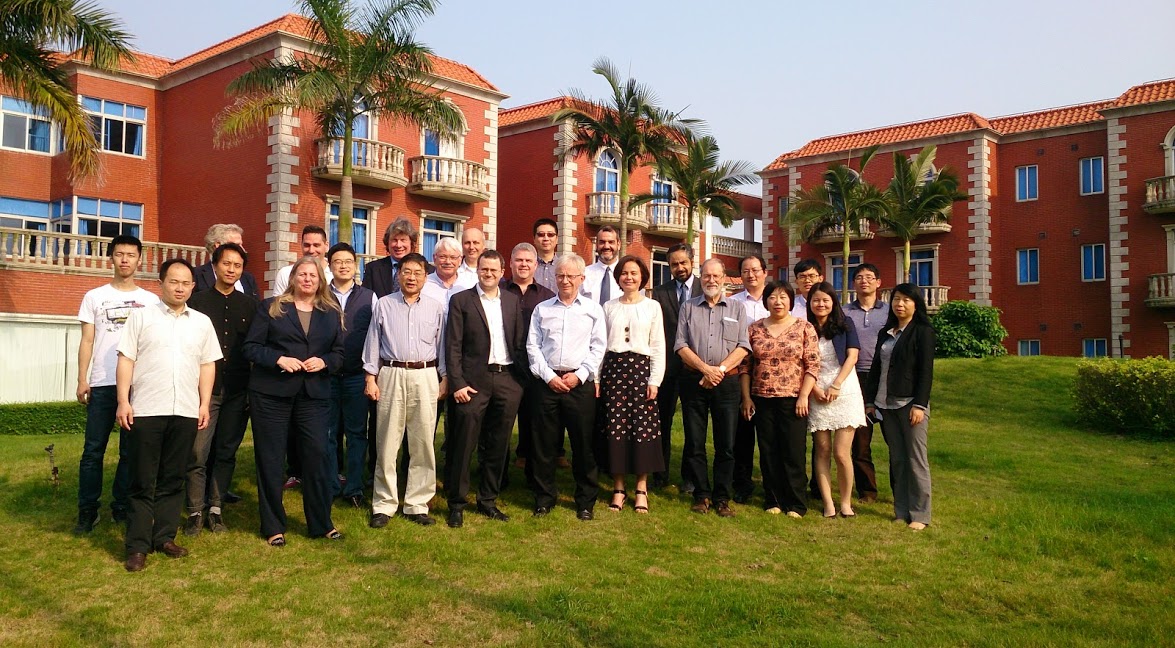

From Apr28-29, 2017 international experts from China, Europe and Asia Pacific met on the island of Gulangyu, Xiamen, China to discuss the role of models in efforts to address the threats to human health in rapidly changing urban environments. Gulangyu was chosen as workshop location for its importance in the history of tropical medicine during the 19th and early 20th century. The workshop was hosted by the Institute of Urban Environment of the Chinese Academy of Sciences (CAS), headed by Prof. Yong Guan Zhu; it was organized by the “Urban Health and Wellbeing: a Systems Approach” programme of the International Council of Science (ICSU), managed by Dr. Franz Gatzweiler, and moderated by Prof. Roderick Lawrence from the University of Geneva.

From Apr 28-29, 2016 international experts from China, Europe and AsiaPacific met on the island of Gulangyu, Xiamen, China to discuss he role of models in efforts to address the threats to human health in rapidly changing urban environments. Gulangyu was chosen as workshop location for its importance in the history of tropical medicine during the 19th and early 20th century. The workshop was hosted by the Institute ofUrban Environment of the Chinese Academy of Sciences (CAS), headed by Prof. Yong Guan Zhu; it was organized by the “Urban Health and Wellbeing: a Systems Approach” programme of the International Council of Science (ICSU), managed by Dr. Franz Gatzweiler, and moderated by Prof. Roderick Lawrence from the University of Geneva.
Participants discussed the role of models for a better systemic understanding of, and decision making on, urban health issues such as air pollution, infectious and lifestyle diseases (such as obesity and cardiovascular diseases); but also antibiotic resistance and the urban heat island effect, which exacerbates respiratory problems and causes heat stroke, exhaustion, and premature deaths. Rapid urban environmental change combined with climate change is not only a real threat to peoples’ health and wellbeing but also their survival. Heat waves peak in cities and cause thousands of premature deaths every year. Just at the time of the meeting, a record heat wave hit India and South-East Asia.
Although life expectancy is generally improving and better in urban than in rural areas, how and where people live and work in cities strongly effects their health and life expectancy. For the urban marginalized and poor, life expectancy is lower than it is for people living outside cities. Health and income inequalities are concentrated in cities – an indication of quality access to employment, education, and public services, still being a privilege of the better-off.
The issues that confront urban decision makers attempting to improve health and wellbeing, are immensely interconnected and complex and therefore require intelligent solutions and support from complex-system modelers. Some of the world’s leading modelers came together in Xiamen to discuss with representatives from local governments, private and public funding agencies, private sector organizations, and the media, how to better implement scientific knowledge on urban health and wellbeing for policy and action. Read the full report
Prof. Roderick Lawrence's commentary for the key issues of the dialogue. Read the commentary.